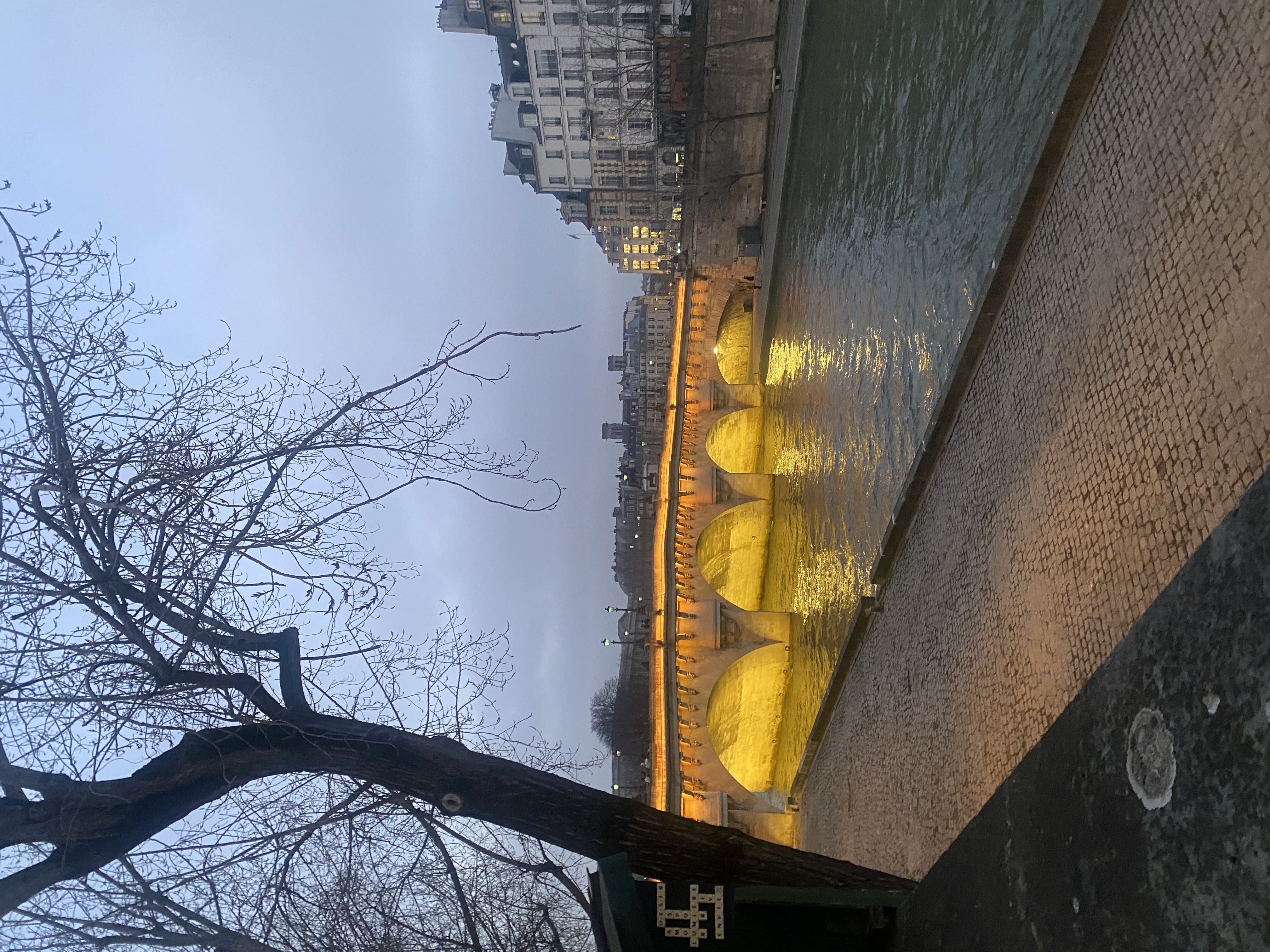سفر پاریس هم بالاخره اتفاق اقتاد. با خودم گفتم چرا الان نه؟ و بلیط گرفتم و رفتم. باید روز تولدم تنها تو پاریس میبودم. اینجوری پاریس هم اتفاق افتاد. پاریس شهر رویاهای مون ۷-۸ ساله نبود ولی پاریس بسیار بسیار زیبا بود. از زیبایی بعد دو روز خسته و overwhelmed بودم الکساندر. حس میکردم باید برگردم شهر خودم و ساختمونهای عادی ببینم. پیادهرویهای طولانی تو خیابونهایی که یک روزی آرزو میکردم داخلشون باشم بهترین قسمت سفر بود. و در انتهای سفر متوجه شدم چقدر آدمی بنده عادته. وقتی رسیدم خونه حس میکردم جدی رسیدهام «خونه». خونهای که ۵ ماهه دارم میسازمش و حالا شده جایی که بهش عادت دارم. مردمش رو میشناسم و قوانینش رو میدونم. جایی که حمل نقل عمومیش برام رایگانه. پاریس بهترین مقصد یه سفر چند روزهس ولی زندگی توش، حالا که شهرهایی مثل لوون رو دیدم، اصلاً برام جذاب نیست. بینظمی و جمعیت زیادش من رو میترسونه الکساندر.

تو پاریس، اونجایی که متوجه شدم با کتابی که برای مه. از شکسپیر و شرکا خریده بودم و دارم آهنگ فرانسوی گوش میدم و کنار سن قدم میزنم لحظه اپیفنی سفر بود. یه لحظه باورم شد که من همونجام؛ اون رودخونهای که شهاب حسینی تو مدار صفر درجه پرید توش و من خیلی کوچیک بودم که بفهمم موضوع سریال چیه ولی به یادم موند.
بعد وقتی مپ تو گوشم گفت بپیچم سمت چپ و وارد خیابون شانزلیزه بشم لحظه دوم مهم سفر بود. حالا دیگه من تو شانزلیزه بودم. شانزلیزه واقعی! تیفانی، بولگاری، لویی ویتون، سواچ، گوچی، زارا، رستورانها، طاق پیروزی. من همونجایی بودم که ماری آنتوانت بوده، همونجایی که ناپلئون بوده. دزیره هم اینجا اتفاق افتاده بود. شبح اپرا هم.

ایفل به زیبایی که تو ذهنم ازش تصویر داشتم نبود چون بسیار بزرگتری از چیزی بود که تصور میکردم. اونقدر بزرگ بود که من رو میترسوند. شب وقتی زیرش نشسته بودم ابهتش من رو گرفته بود و اجازه نمیداد کنارش احساس آرامش کنم. وقتی رأس ساعت میرسید تو شب پاریس برق میزد و از دور بسیار زیبا میشد اما از نزدیک؟ شکوهمند.
ولی وقتی صبح به دیدنش رفتم مهربونتر بود. دریاچه کوچیک زیرش انعکاسش میداد و از تو انعکاس شک کردم که شاید زیبا هم باشه.
پاریس رو به تنهایی گشتن از تصمیمات خوب ۲۳ سالگیم بود. حالا دیگه ۲۴ سالگی رو شروع کردم و فکر میکنم دیگه ۲۴ خیلی بزرگه. وقتی مح. ۲۴ سالش بود احساس میکردم آدمی بزرگتر از اون نمیتونه وجود داشته باشه و حالا خودم ۲۴ سالمه. باید ببینم ۲۴ سالگی چطور پیش میره. این سالهم سال مهمیه. پر از تصمیمات مهم.
شاید هم به پیشنهاد مه. عمل کردم، هر سال تولد solo travel به یه شهر اروپایی. مثلاً سال بعد، آمستردام؟ نمیدونم الکساندر، شاید.
یکی از قسمتهای مهم پاریس، فکر کردن به رابطههایی که تا به حال داشتم بود. به هرحال رفته بودم شهر تمام چیزهای رمانتیک جهان و باید به خودم و روابطم فکر میکردم. به ز. فکر کردم و در اصل بلیط تالار گارنیه رو برای این گرفتم که اون شبح اپرا رو دوست داشت. حس کردم حالا که اونجاام باید برم و جشن بگیرم اون روز و ساعتی رو که ز. رو دوست داشتم. و چون اون شبح اپرا رو دوست داشت، چه چیزی بهتر از دیدن اونجا؟
و به عین. فکر کردم. با عین. هنوز به اونجایی نرسیدم که بخوام چیزی رو جشن بگیرم. هنوز به اون مرحله نرسیدم که از حسی که نسبت بهش داشتم لذت ببرم و شادی کنم که روزی دوست داشتم و دوست داشته شم. هنوز غمگین و خستهام. پس جشنی در کار نبود، یادآوریهای کوتاه و جریان سیالی که تو ذهنم از خاطراتمون بود مدام در حال پخش بود جلوی چشمام.
حالا پاریس گذشته و من خونهام. لباسهای راحتی پوشیدهام و تو تختم با ملافههایی که تازه شسته شده دارم مینویسم. راهنمای موزه لوور، کارت پستال ۱ یوروییم که از شانزلیزه خریدم و ساک خرید شکسپیر و شرکا به دیوارم چسبیده و حالا هر اتفاقی در جهان بیفته، من روز تولد ۲۳ سالگیم پاریس بودم و زیر ایفل شمع کیک کوچیکم رو فوت کردم؛ با اینکه ترسیده بودم.
-













